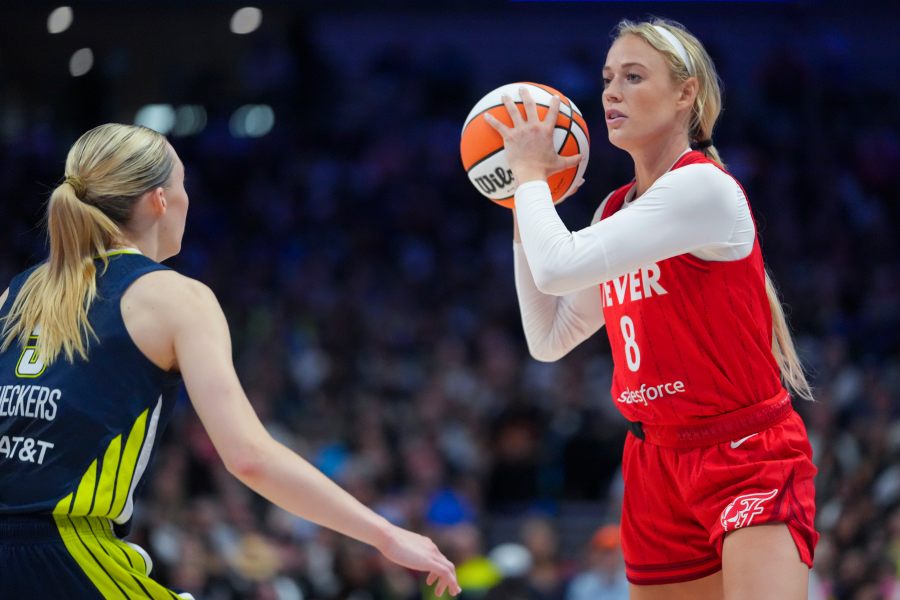
CLEVELAND (AP) — Civic pride is on full display in Cleveland and Detroit as both cities respond to recent comments made by Indiana Fever guard Sophie Cunningham. Cunningham questioned the WNBA’s decision to expand into these markets, sparking a spirited defense from local officials and sports fans alike.
The social media accounts for both cities quickly fired back after Cunningham expressed doubts about the enthusiasm for WNBA expansion to these locations. On Tuesday, Cunningham remarked, “I’m not sure how excited people are to be going to Detroit or Cleveland.”
In response, Cleveland’s official account shared a video featuring Caitlin Clark, a star player from the Fever, praising her experience in Cleveland during the 2024 Final Four. The post cheekily noted, “Sophie, your teammate doesn’t seem to think Cleveland is too bad!” Meanwhile, Detroit highlighted its rich sports culture, referencing the former WNBA franchise, the Detroit Shock, and its strong attendance record, stating, “Detroit is a sports town.”
WNBA’s Strategic Expansion
The WNBA’s decision to expand comes as part of a broader strategy to increase its footprint and audience. On Monday, the league announced plans to add three more teams by 2030, with Cleveland, Detroit, and Philadelphia set to join the league in 2028, 2029, and 2030, respectively. This expansion will bring the total number of teams to 18, with Toronto and Portland already slated to welcome new franchises next season.
Cunningham, a seasoned player with seven years in the league, primarily with the Phoenix Mercury, voiced her skepticism about the choice of Cleveland and Detroit. Both cities have previously hosted WNBA teams that eventually folded, which may contribute to her concerns.
Historical Context and Market Potential
Cleveland and Detroit have rich histories with professional basketball, albeit with mixed results in the WNBA. The Cleveland Rockers, one of the league’s original teams, played from 1997 to 2003, while the Detroit Shock saw success before relocating to Tulsa in 2010.
Despite past challenges, both cities boast passionate sports fan bases. Cleveland is home to the Cavaliers, who won the NBA Championship in 2016, and Detroit has a storied history with the Pistons. The WNBA’s return to these cities taps into existing basketball enthusiasm and infrastructure.
“Detroit is a sports town,” the city’s social media post emphasized, reflecting a strong belief in the city’s ability to support a WNBA team once again.
Expert Opinions and Future Prospects
Sports analysts suggest that the WNBA’s expansion into Cleveland and Detroit could be a strategic move to capture untapped markets. According to sports economist Dr. Jane Williams, “Both cities have a deep-rooted sports culture. The key will be engaging local communities and building a strong fan base from the ground up.”
Additionally, the league’s expansion aligns with its broader goals of increasing viewership and participation in women’s sports. The inclusion of new teams in diverse markets is seen as a step toward achieving these objectives.
By the Numbers: The WNBA plans to expand to 18 teams by 2030, with new franchises in Cleveland, Detroit, and Philadelphia joining the league.
Looking Ahead
The WNBA’s decision to expand into Cleveland and Detroit marks a significant step in the league’s growth strategy. While Cunningham’s comments have sparked debate, they have also drawn attention to the potential and challenges of these new markets.
As the league prepares for this next phase, the focus will be on building strong community ties and ensuring the success of the new franchises. The coming years will be critical in determining whether these cities can sustain and grow their WNBA teams, contributing to the league’s long-term vision.




